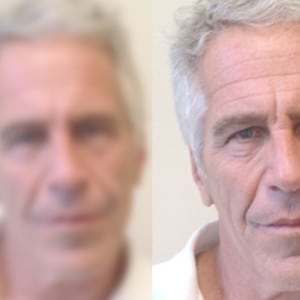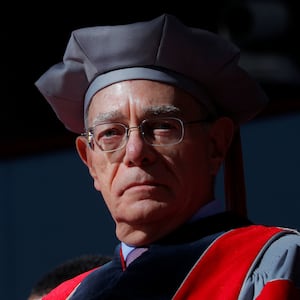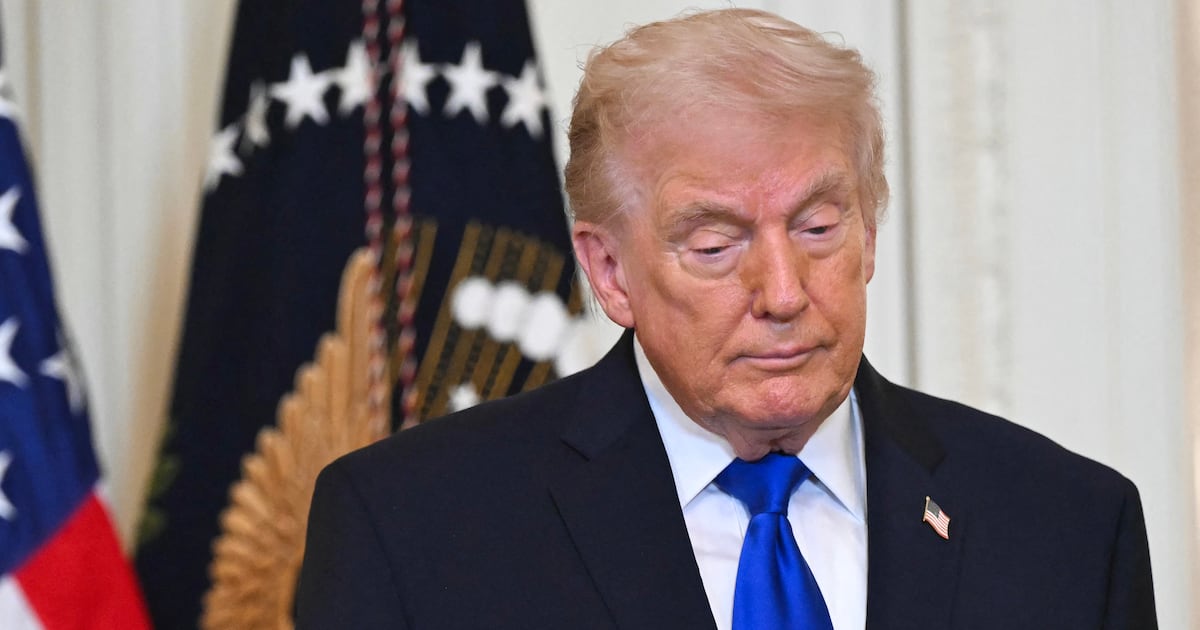A tenured MIT professor has been put on paid leave amid revelations that he “purposely failed” to disclose that Jeffrey Epstein was the source of two donations that supported his research—and that he received a personal $60,000 gift from the convicted sex offender, the university said.
Seth Lloyd, a mechanical engineering professor, was placed on leave Friday after a law firm hired by the university to investigate the school’s ties with the late financier found that he’d secretly received $225,000 from Epstein over a five-period.
The report on Goodwin Procter’s findings indicates that Epstein viewed his first donation to Lloyd in 2012 “as a trial balloon to test MIT’s willingness to accept donations” following his 2008 sex-crime conviction.
“Professor Lloyd knew that donations from Epstein would be controversial and that MIT might reject them,” the report concluded. “We conclude that, in concert with Epstein, he purposefully decided not to alert the Institute to Epstein’s criminal record, choosing instead to allow mid-level administrators to process the donations without any formal discussion or diligence concerning Epstein.”
According to the 61-page report, investigators found that Lloyd failed to disclose two $50,000 donations from Epstein in 2012, and a $125,000 donation in 2017. The renowned quantum physics professor also “received a personal gift of $60,000 from Epstein in 2005 or 2006, which he acknowledged was deposited into a personal bank account and not reported to MIT,” according to a press release about the findings.
In August, MIT admitted to accepting $800,000 in donations from Epstein. Friday’s report revealed the school received a total of $850,000 from Epstein, and that three current and former university officials knew about at least one 2013 donation to the MIT Media Lab, whose director resigned in September over the Epstein scandal.
In total, Epstein made 10 donations to MIT between 2002 and 2017 and visited the school nine times. Epstein died by suicide in August in his Manhattan jail cell after being arrested on federal child sex-trafficking charges.
“Since MIT had no policy or processes for handling controversial donors in place at the time, the decision to accept Epstein’s post-conviction donations cannot be judged to be a policy violation,” the report states. “But it is clear that the decision was the result of collective and significant errors in judgment that resulted in serious damage to the MIT community.”
In 2002, the report states, Epstein gave his first donation of $100,00 to support the research of the late Professor Marvin Minsky, who died in 2016. The remaining nine donations, which were all made after Epstein’s conviction, were made to the Media Lab and Lloyd.
As previously reported by The Daily Beast, Epstein and Lloyd also had a personal relationship, and the professor attended a 2007 gathering on his private island, Little St. James. In November, Lloyd even began his quantum computing class with a “monologue” about his relationship with Epstein—prompting students to demand his resignation.
The report also found that while senior administrators R. Gregory Morgan)" href="https://urldefense.com/v3/__http:/mit.pr-optout.com/Tracking.aspx?Data=HHL*3d8378*3f3-*3eLCE9*3b4*3b8*3f*26SDG*3c90*3a.&RE=MC&RI=2344981&Preview=False&DistributionActionID=76406&Action=Follow*Link__;JSUlJSUlJSUlKw!!PIZeeW5wscynRQ!7SQYeFFCi1hLg0LRANuY3MkWxU2uYmBZmoj5prtPpQLbHPLEuJeFp9OogDHrMhjYjA$">R. Gregory Morgan, Jeffrey Newton)" href="https://urldefense.com/v3/__http:/mit.pr-optout.com/Tracking.aspx?Data=HHL*3d8378*3f3-*3eLCE9*3b4*3b8*3f*26SDG*3c90*3a.&RE=MC&RI=2344981&Preview=False&DistributionActionID=76405&Action=Follow*Link__;JSUlJSUlJSUlKw!!PIZeeW5wscynRQ!7SQYeFFCi1hLg0LRANuY3MkWxU2uYmBZmoj5prtPpQLbHPLEuJeFp9OogDHd_IKMEg$">Jeffrey Newton, and Israel Ruiz)" href="https://urldefense.com/v3/__http:/mit.pr-optout.com/Tracking.aspx?Data=HHL*3d8378*3f3-*3eLCE9*3b4*3b8*3f*26SDG*3c90*3a.&RE=MC&RI=2344981&Preview=False&DistributionActionID=76404&Action=Follow*Link__;JSUlJSUlJSUlKw!!PIZeeW5wscynRQ!7SQYeFFCi1hLg0LRANuY3MkWxU2uYmBZmoj5prtPpQLbHPLEuJeFp9OogDF5Gm4AYQ$">Israel Ruiz had made “significant mistakes of judgment” in accepting donations from Epstein, the trio did not breach any university policy. The report added that MIT’s senior leadership did not know about Epstein’s nine visits.
“In the absence of any MIT policy regarding controversial gifts, Epstein’s subsequent gifts to the Institute were approved under an informal framework developed by the three administrators,” the report states.
In December, MIT announced that Ruiz would step down after this semester, stating the decision to leave a post he had since 2011 stemmed from his plans to focus “on opportunities that accelerate innovation.” Morgan and Newton have both retired from the university within the last two years.
The report also cleared MIT’s president, L. Rafael Reif, of wrongdoing, saying that the president was unaware of donations by Epstein and that he “had no role” in garnering funds for the school’s prestigious Media Lab.
In a Friday letter addressed to the university, Reif admitted the report found “disturbing new information about Jeffrey Epstein’s connections with individuals at MIT: how extensive those ties were and how long they continued. This includes the decision by a lab director to bring this Level 3 sex offender to campus repeatedly.”
Reif, who previously acknowledged he signed a thank-you letter to Epstein for a 2012 donation, added that MIT “must fix what needs fixing and improve what needs improving.” The school also plans to donate $850,000 to a charity that benefits survivors of sexual abuse.
The elite technical university first came under fire last September for accepting donations from Epstein after a bombshell New Yorker expose. The report centered around MIT’s Media Lab and its director, Joi Ito, who admitted and apologized for taking $525,000 from Epstein for the lab—and $1.2 million for himself. He resigned less than a day after publication.
Other media outlets later reported top university officials, beyond the Media Lab, approved Epstein’s donations on the condition that they would remain anonymous—an allegation confirmed in Friday’s report.









